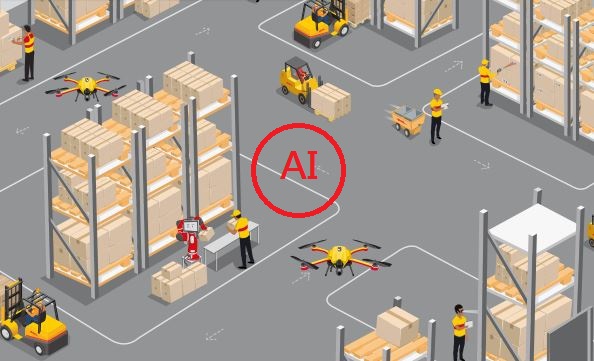
Perhaps one of the most versatile and at the same time controversial of the growing list of emerging technologies; AI has seen its fair share of positive and negative coverage. Many big names in tech & businesses such as Elon Musk of Tesla and Mark Zuckerberg of Facebook also talked and debated about the future applications or possibilities of AI. Out of its many applications, AI in logistics might be one of the most easily overlooked, but it is significant as it may affect millions of jobs if not more.
AI Applications in Logistics
In a 2018 report published by DHL and IBM, AI is expected to handle a myriad of standardized, routine jobs from humans and also augment the human workers. Depending on the level of complexity of the job, the human may only need to make a decision based on the AI or even rely on the AI to handle the job. The AI in this case may or may not be accompanied by a robotic agent who will handle the mechanical or physical part of the job.
With the much greater capacity and capability to process data, AI can be used to effectively predict a more efficient routing for delivery or transportation. Currently, statistics combined with computer models and simulations have been used in logistics to reduce or eliminate delays and shortages. Introducing AI to the current system can increase the models’ accuracy and reduce uncertainty.
A possible future logistics system might have AI combined with image processing where a computer reads the destination addresses. The data then is aggregated by software which then creates the most efficient routes possible. Robot pickers will then collect the packages whose destinations are near each other and load them to an autonomous truck. The autonomous vehicles such as trucks or UAVs will also need a combination of AI and smart transportation management system which will communicate with the vehicles for road conditions or updated routing.
But at What Cost?
Despite all the praises given to AI, it might be important to note that incorporating AI into classic industries such as logistics may have unintended consequences. For example, an autonomous delivery truck may solve the truck driver shortage in many countries such as US and UK. At the same time however, logistics is one of the most labor intensive industries, meaning it absorbs the labor force quite significantly and by doing so reduces unemployment.
However, as AI is utilized in logistics, this situation might change. As AI gets smarter and more capable, many jobs traditionally reserved for humans might be taken by AI or a combination of AI and robotics. The fact that many aspects of the modern AI have actually outperformed humans might also mean that many people may lose their livelihood and in effect increase unemployment.
If this became the case, humans might still be necessary in the future as decision makers in the system or to be personally involved when emergencies arise. However, this will still mean that either a significant portion of the logistics worker would have been made redundant or job prospects will become bleaker for the future. Regardless of the outcome, drastic changes will happen.
Conclusion
So is introducing AI worth the potential trouble it will cost? Innovation will always take sacrifices as the old gets replaced by the new. However, innovation does not need to be a zero sum game where one side benefits only when the other suffers. It will take a serious and conscious effort from both the workforce and the employers to make sure that innovation is something that will work for everyone.
See More AI Applications in InnoVEX 2019
AI was one of the main topics of InnoVEX 2018 and has seen a diverse application in many industries; not only logistics and transportation. AI will also be an important aspect in InnoVEX 2019 which will also have a dedicated Theme Pavilion on AI. On October 31 2018, InnoVEX will hold a back-to-back Saloon networking events for both AI and Blockchain.